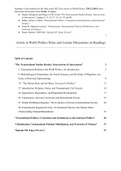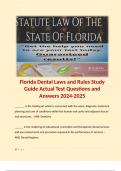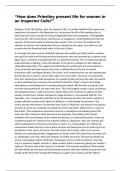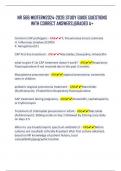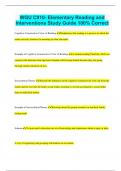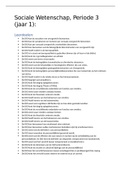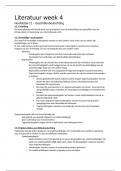Class notes
Actors in World Politics Notes and Lecture Discussions on Readings - GRADE 7,5
- Course
- Institution
- Book
Summary of the material for the final exam (2021) for Actors in World Politics. INCLUDES notes and lecture discussions from (Total: 54 pages): Sanjeev Khagram and Peggy Levitt’s book “The Transnational Studies Reader: Intersections & Innovations”, chapters 2, 9, 19, 27, 39, 45, 47 and 48. ...
[Show more]
